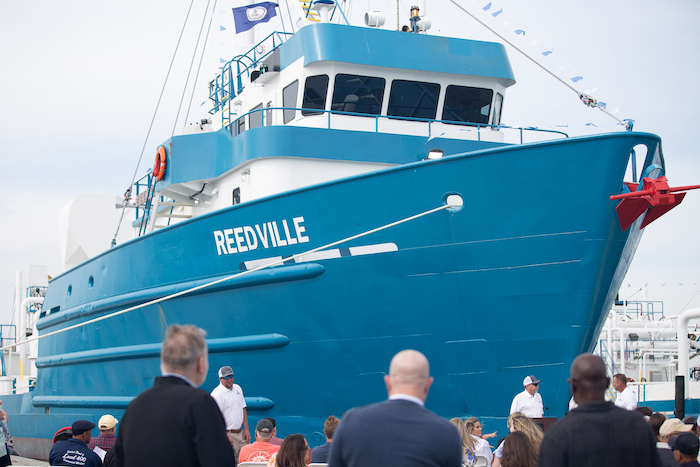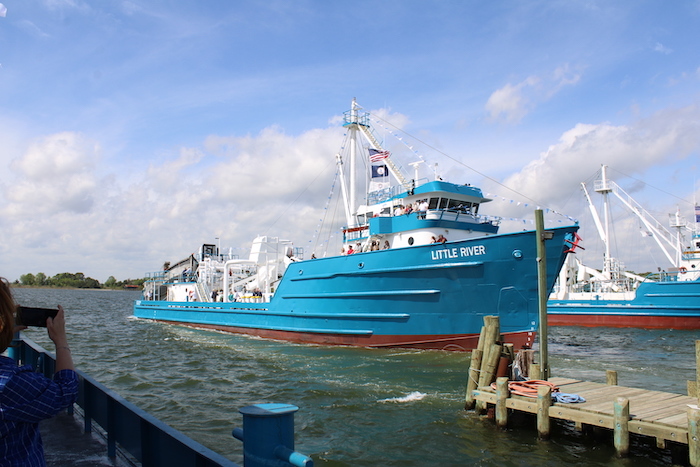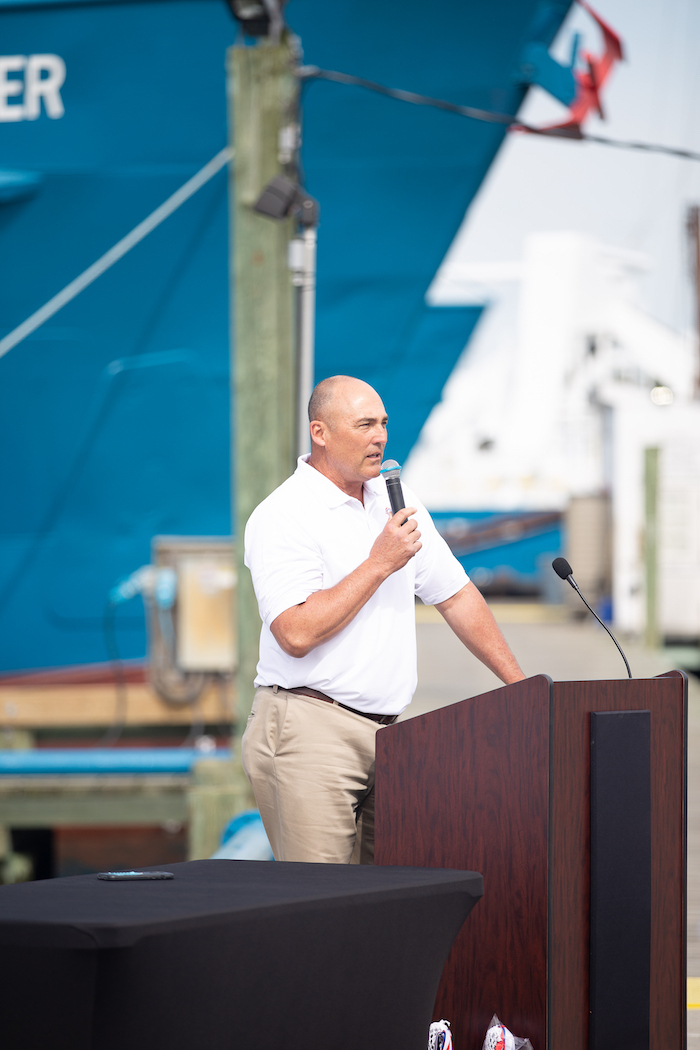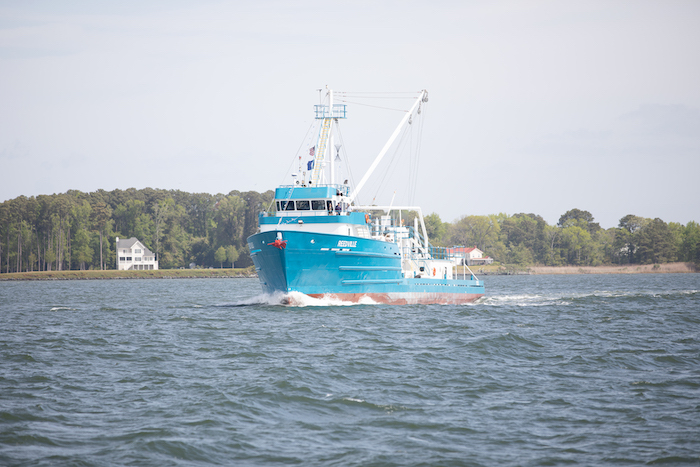July 25, 2024 — On Wednesday, July 10, four Omega Protein employees went above and beyond their daily protocols when they rescued two overturned kayakers near the facility.
It was a regular, windy day when lead fish bailer Darvell Kelly noticed something strange a ways away in the water.
According to Kelly, the waters were rough that day as he was unloading fish from the boat to the dock at the facility.
While getting on and off the boat unloading, Kelly realized what he had seen in the distance in Cockrell Creek were two people stranded in need of some help.




